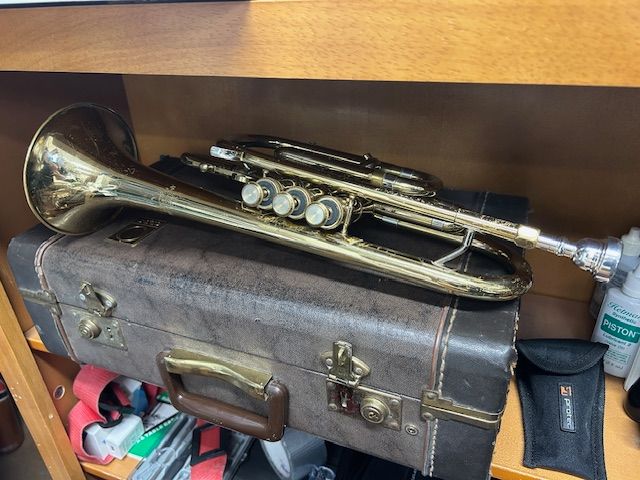@Dale-Proctor Sometime ago I was helping clean out my brother-in-law's storage unit. There I see an Olds Ambassador cornet in a case. It belonged to my nephew when he was in middle school or something like that. I took it home and had it cleaned and straightened. For the last few months it has been sitting by my side in my practice room. It does everything I could ask a horn to do and it does all that easier than all my other horns. It sort of feels like I don't need the twenty something trumpets and cornets I have sitting around. Who knew a little cornet like that would be that great.


